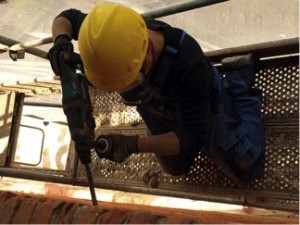 For some dads, an effort is made to maintain a fine balance between work and family since they consider them intertwined and equally important. Just as you can’t be with your children 20 hours per day and hold a job, or spend 20 hours per day at work and be an effective dad, occasional compromises between work and family are required to maintain a happy medium.
For some dads, an effort is made to maintain a fine balance between work and family since they consider them intertwined and equally important. Just as you can’t be with your children 20 hours per day and hold a job, or spend 20 hours per day at work and be an effective dad, occasional compromises between work and family are required to maintain a happy medium.
For these dads, keeping work and family equal is a matter of pragmatism. On an emotional or ideal basis they believe that family is the higher priority. They believe that fulfilling their role as a father includes being a good provider, in fine balance with family life. They are defensive of family time, being intentional in their efforts to not let work rob their kids and family of time with their dad. One dad adjusts his shifts so he can spend more time with his kids. He’ll swap shifts to be at home even for a brief period at dinner time when he can ask the kids about their day.
 Another dad, a teacher, goes into work early so when he comes home in the evening his family has his full attention. Some dads maximize precious family time by including their kids in everything they do or wherever they go outside of work. Rather than stay in a job that intrudes into family time and is inflexible, many of these dads look for a new job that enables family time. These dads aren’t immune from the challenges of separating career and family priorities. In practice they are willing and intentional in their effort to compromise as best they can keep their career and family roles balanced.
Another dad, a teacher, goes into work early so when he comes home in the evening his family has his full attention. Some dads maximize precious family time by including their kids in everything they do or wherever they go outside of work. Rather than stay in a job that intrudes into family time and is inflexible, many of these dads look for a new job that enables family time. These dads aren’t immune from the challenges of separating career and family priorities. In practice they are willing and intentional in their effort to compromise as best they can keep their career and family roles balanced.
Unless a dad is independently wealthy and doesn’t need to work, it is normal for him to be confronted with conflicting priorities of work and family. How the father addresses the balance of work and family has significant positive or negative ramifications for all stakeholders; himself, his family, and his employer.
For many separated dads, time becomes even more precious, the need to continue earning is a heightened because finances are stretched. Many dads that have a fortnightly or 50/50 access agreement take intentional action to ensure that nothing gets in the way of their time with their children. Work shifts, social engagements get pushed aside over having access with their children. For this group of dads, career and promotion opportunities are often missed and social friends disappear but from the value they get from fathering they would not have it any other way.
 The father’s behavior will in large measure be based on his sense of control, the flexibility of his job and family, and his willingness to engage in healthy compromise and boundary setting. Work and family will be out of balance when boundaries are absent or not enforced. Poor boundaries created by an out of balance condition can be generated by the father, or in some cases inflexible demands of the family, the job or the employer.
The father’s behavior will in large measure be based on his sense of control, the flexibility of his job and family, and his willingness to engage in healthy compromise and boundary setting. Work and family will be out of balance when boundaries are absent or not enforced. Poor boundaries created by an out of balance condition can be generated by the father, or in some cases inflexible demands of the family, the job or the employer.
Focus on the children can help fathers by raising their awareness of the factors necessary for a healthy work/family balance. Since families need to eat, there may be periods of time where it is the father’s duty to tolerate a work/family imbalance. On the other hand, many fathers may actually be promoting the condition by poor boundary setting or failing to research and pursue different job opportunities that may be available. With the many conflicting priorities inherent to work and family demands, the issues surrounding work/life imbalance can be a significant source of stress to fathers and their families.

 Anyone with young children will know that whilst holidays are a fantastic opportunity to ‘get away from it all’ and spend quality time together. Sometimes the stress of the journey to get there can make you question whether it’s worth all the effort!
Anyone with young children will know that whilst holidays are a fantastic opportunity to ‘get away from it all’ and spend quality time together. Sometimes the stress of the journey to get there can make you question whether it’s worth all the effort! Filmmaker Justin Hunt will be joined by musician-composer James Hetfield in presenting and discussing the award-winning documentary Absent, exploring the worldwide crisis of absent and disengaged fathers and the negative impact that the “father wound” makes on society.
Filmmaker Justin Hunt will be joined by musician-composer James Hetfield in presenting and discussing the award-winning documentary Absent, exploring the worldwide crisis of absent and disengaged fathers and the negative impact that the “father wound” makes on society. 
 Divorce changes a lot of things in your family unit, but it does not change one of the major goals that parents often desire to achieve: the ability to raise your children in a way that puts their mental, emotional, and physical health first. Before your divorce, you and your spouse worked as a single unit to protect and provide for your children. Now you must work as separate units, all-be separate units that agree at times, to care for your children.
Divorce changes a lot of things in your family unit, but it does not change one of the major goals that parents often desire to achieve: the ability to raise your children in a way that puts their mental, emotional, and physical health first. Before your divorce, you and your spouse worked as a single unit to protect and provide for your children. Now you must work as separate units, all-be separate units that agree at times, to care for your children. Every parent wants to do a good job raising their kids.
Every parent wants to do a good job raising their kids. I have been a separated dad for over 25 years, twice over. Its something I am not proud of but I am proud of being a good dad. I have had two very different experiences. My first child was every second weekend, I did everything I could to be in her life – as much as I was allowed or welcomed.
I have been a separated dad for over 25 years, twice over. Its something I am not proud of but I am proud of being a good dad. I have had two very different experiences. My first child was every second weekend, I did everything I could to be in her life – as much as I was allowed or welcomed. People often associate negotiations with deals between companies or purchases but in reality, the average person makes dozens of negotiations every single day. Whether it’s discussion with an (ex)spouse, pleading with children, or coming to a consensus on dinner plans with friends – negotiating is a part of everyday life. While everyone inevitably engages in some form of negotiation, not everyone is skilled at it. Luckily, it doesn’t require years of business classes to become a great negotiator. And the benefits of becoming a great communicator can be tremendous. Keep the following things in mind for future negotiations.
People often associate negotiations with deals between companies or purchases but in reality, the average person makes dozens of negotiations every single day. Whether it’s discussion with an (ex)spouse, pleading with children, or coming to a consensus on dinner plans with friends – negotiating is a part of everyday life. While everyone inevitably engages in some form of negotiation, not everyone is skilled at it. Luckily, it doesn’t require years of business classes to become a great negotiator. And the benefits of becoming a great communicator can be tremendous. Keep the following things in mind for future negotiations. Getting your first part time job is a proud moment in anyone’s life, and this will be no different for your teen.
Getting your first part time job is a proud moment in anyone’s life, and this will be no different for your teen. Once you have decided on that once in a lifetime road trip across the country, there is little you can do other than dream about your perfect getaway. But before you get lost in the clouds, come back down to earth and plan your trip properly before you go. This is ensure fewer obstacles and more time spent enjoying your adventure. Follow this simple guide and make sure you don’t forget anything important when planning your next road trip.
Once you have decided on that once in a lifetime road trip across the country, there is little you can do other than dream about your perfect getaway. But before you get lost in the clouds, come back down to earth and plan your trip properly before you go. This is ensure fewer obstacles and more time spent enjoying your adventure. Follow this simple guide and make sure you don’t forget anything important when planning your next road trip. News gleaned from the TV, radio, or Internet can be a positive educational experience for kids. But when the images presented are violent or the stories touch on disturbing topics, problems can arise.
News gleaned from the TV, radio, or Internet can be a positive educational experience for kids. But when the images presented are violent or the stories touch on disturbing topics, problems can arise. Having a teenager can be a difficult time, and being one can be even harder. It’s a strange time in their life as they aren’t a kid anymore, but they still rely on people to assist them with decision making. There has been an increase of teenagers joining the workforce in recent years, and the idea of letting adolescents work has been a heavy debate for years. If you and your teenager are trying to decide if getting a part time job is right for their path, there are a few things to consider:
Having a teenager can be a difficult time, and being one can be even harder. It’s a strange time in their life as they aren’t a kid anymore, but they still rely on people to assist them with decision making. There has been an increase of teenagers joining the workforce in recent years, and the idea of letting adolescents work has been a heavy debate for years. If you and your teenager are trying to decide if getting a part time job is right for their path, there are a few things to consider:
















How to cope emotionally when your children want nothing to do with you.
Keep a perspective can help in coping with rejection. The child’s attitude may not be forever. Also, there is usually a significant reason why they want to maintain a distance, at least from the child’s perspective, irrespective of what influences there are on the child. It helps to reflect on these reasons and if you can’t do it on your own without always becoming distressed or angry, then getting support from others, including professionals may be a helpful path. Regardless of any perceived injustice on you, your child will need your patience and respect, while maintaining an ‘open door’ policy to show them you are available, open minded and dependable.
Focus on your strengths as a father and make those strengths stronger. Look back over time and recall your achievements, recall the lessons you learnt from your father and mother, and what you have gained from other men and fathers you have known or read about. Improve who you want be as a dad. When the time comes for your child to want you back in, you’ll have even more to offer.
Fathers who pour energy into their mental, physical and emotional well being are also likely to be healthy men and fathers, who children will look up to and enjoy being with. The usual suspects apply, such as physical exercise, healthy eating, and keeping away from damaging drugs and alcohol abuse. Meditation can help in many ways, including increasing how well you tolerate stress, reduce your emotional reactivity, and increase your acceptance of changes beyond your control. Paying attention to your social network is also very important. Invest in new friendships and networks (clubs, groups, etc), and reinvest in old ones – it’s never too late.
There are also various support services available such as : self-help groups and telephone counselling services for men, as well as group programs which focus on fathers and separation. Check the links available on this website.
For some fathers, professional support may be necessary if implementing some of these suggestions is difficult or if extra specialist help is needed. If so, you may wish to have a look at http://www.vcps.com.au/ .
By Dr Cherine Habib
Clinical Psychologist and Father.
Victorian Counselling and Psychological Services